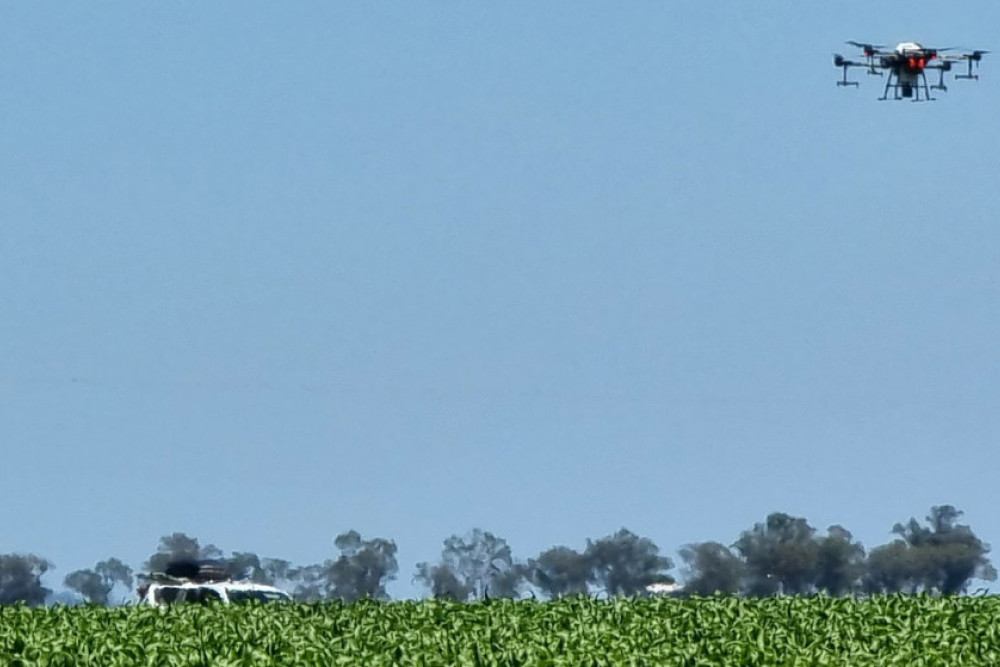Agricultural
16 February, 2022
Drones battling Fall armyworm
Local agricultural business Drone Commander is using drones to combat the destructive insect fall armyworm (FAW).

Prevalent in crops with whorls such as sorghum and maize, FAW has been a menace to local crops this season.
In January, a Department of Agriculture and Fisheries spokesperson said most crops planted in the eastern Darling Downs in December 2021 and January 2022 have had an infestation.
Drone Commander, based in Cambooya, has been using drones to combat FAW with good success.
Drone Commander principal Roger Woods said FAW had been appearing in local crops since early last year and farmers from here to the Sunshine Coast have been requesting his help to eliminate the pest from their crops.
Mr Woods said he has been using fermented bacteria, which is very high tech, and a beneficial virus which especially attacks FAW.
“It’s a precision strike,” Mr Woods said.
“Very effective. The real benefit is it’s treating the pest in all of its life cycle stages in one application.”
Young larvae feed on the leaf surface older larvae can feed on roots and reproductive structures and female moths can lay up to 1,000 eggs.
The Queensland Govern-ment state eradication of FAW has been determined to be unfeasible and it is now classified as an endemic pest.
It was first detected on the Australian mainland in February 2020 and is now widespread.


